The National Parks: America's Best Idea - Season 1
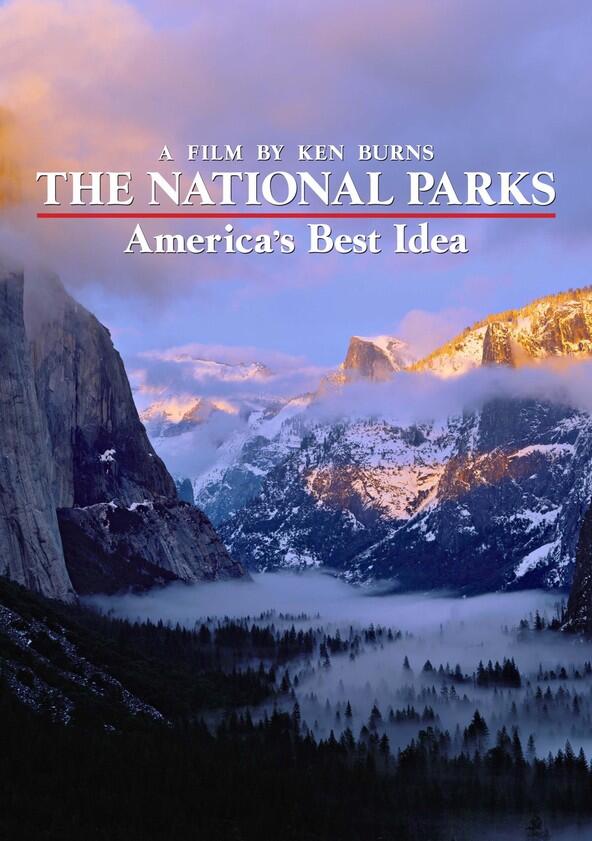
Season 1

Episodes
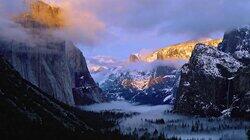
The Scripture of Nature (1851-1890)
In 1851, word spreads across the country of a beautiful area of California's Yosemite Valley, attracting visitors who wish to exploit the land's scenery for commercial gain and those who wish to keep it pristine. Among the latter is a Scottish-born wanderer named John Muir, for whom protecting the land becomes a spiritual calling. In 1864, Congress passes an act that protects Yosemite from commercial development for "public use, resort and recreation"—the first time in world history that any government has put forth this idea—and hands control of the land to California. Meanwhile, a "wonderland" in the northwest corner of the Wyoming territory attracts visitors to its bizarre landscape of geysers, mud pots and sulfur pits. In 1872, Congress passes an act to protect this land as well. Since it is located in a territory, rather than a state, it becomes America's first national park: Yellowstone.
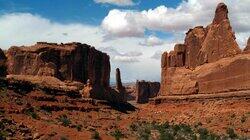
The Last Refuge (1890-1915)
By the end of the 19th century, widespread industrialization has left many Americans worried about whether the country—once a vast wilderness—will have any pristine land left. At the same time, poachers in the parks are rampant, and visitors think nothing of littering or carving their names near iconic sites like Old Faithful. Congress has yet to establish clear judicial authority or appropriations for the protection of the parks. This sparks a conservation movement by organizations such as the Sierra Club, led by John Muir; the Audubon Society, led by George Bird Grinnell; and the Boone and Crockett Club, led by Theodore Roosevelt. The movement fails, however, to stop San Francisco from building the Hetch Hetchy dam at Yosemite, flooding Muir's "mountain temple" and leaving him broken-hearted before he dies.
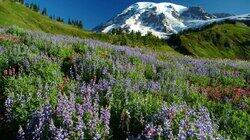
The Empire of Grandeur (1915-1919)
In the early 20th century, America has a dozen national parks, but they are a haphazard patchwork of special places under the supervision of different federal agencies. After failing to stop the Hetch Hetchy dam, the conservation movement pushes the government to establish one unified agency to oversee all the parks, leading to the establishment of the National Park Service in 1916. Its first director, Stephen Mather, a wealthy businessman and passionate park advocate who fought vigorously to establish the NPS, launches an energetic campaign to expand the national park system and bring more visitors to the parks. Among his efforts is to protect the Grand Canyon from encroaching commercial interests and establish it as a national park, rather than a national monument.
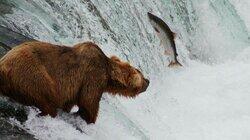
Going Home (1920-1933)
While visiting the parks was once predominantly the domain of Americans wealthy enough to afford the high-priced train tours, the advent of the automobile allows more people than ever before to visit the parks. Mather embraces this opportunity and works to build more roads in the parks. Some park enthusiasts, such as Margaret and Edward Gehrke of Nebraska, begin "collecting" parks, making a point to visit as many as they can. In North Carolina, Horace Kephart, a reclusive writer, and George Masa, a Japanese immigrant, launch a campaign to protect the last strands of virgin forest in the Smoky Mountains by establishing it as a park. In Wyoming, John D. Rockefeller Jr. begins quietly buying up land in the Teton Mountain Range and valley in a secret plan to donate it to the government as a park.
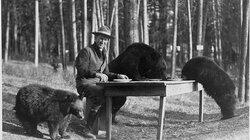
Great Nature (1933-1945)
To battle unemployment in the Great Depression, Franklin D. Roosevelt creates the Civilian Conservation Corps, which spawns a "golden age" for the parks through major renovation projects. In a groundbreaking study, a young NPS biologist named George Melendez Wright discovers widespread abuses of animal habitats and pushes the service to reform its wildlife policies. Congress narrowly passes a bill to protect the Everglades in Florida as a national park—the first time a park has been created solely to preserve an ecosystem instead of scenic beauty. As America becomes entrenched in World War II, Roosevelt is pressured to open the parks to mining, grazing, and lumbering. The president also is subjected to a storm of criticism for expanding the Grand Teton National Park in Wyoming by accepting a gift of land secretly purchased by John D. Rockefeller Jr.
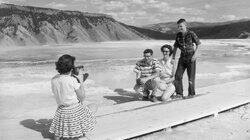
The Morning of Creation (1946-1980)
Following World War II, the parks are overwhelmed as visitation reaches 62 million people a year. A new billion-dollar campaign—Mission 66—is created to build facilities and infrastructure that can accommodate the flood of visitors. A biologist named Adolph Murie introduces the revolutionary notion that predatory animals, which are still hunted, deserve the same protection as other wildlife. In Florida, Lancelot Jones, the grandson of a slave, refuses to sell to developers his family's property on a string of unspoiled islands in Biscayne Bay and instead sells it to the federal government to be protected as a national monument. In the late 1970s, President Jimmy Carter creates an uproar in Alaska when he sets aside 56 million acres of land for preservation—the largest expansion of protected land in history. In 1995, wolves are re-established in Yellowstone, making the world's first national park a little more like what it once was.
Recently Updated Shows

What Would You Do?
When you think no one is watching… What Would You Do?
Using hidden cameras, What Would You Do? establishes everyday scenarios and then captures people's reactions. Whether people are compelled to act or mind their own business, John Quiñones reports on their split-second and often surprising decision-making process.

Wild Cards
Wild Cards follows the unlikely duo of a gruff, sardonic cop and a spirited, clever con woman. Ellis, a demoted detective, has unfortunately spent the last year on the maritime unit, while Max has been living a transient life elaborately scamming everyone she meets. But when Max gets arrested and ends up helping Ellis solve a local crime, the two are offered the opportunity to redeem themselves, with Ellis going back to detective and Max staying out of jail. The catch? They have to work together, with each using their unique skills to solve crimes. For Ellis, that means hard-boiled shoe leather police work; for Max, it means accents, schemes and generally befriending everyone in sight, while driving Ellis absolutely nuts. Against the backdrop of beautiful Vancouver — with all its unique, charming, and even contradictory neighbourhoods and subcultures — the two will have to learn what it means to trust another person and maybe actually become partners.

Unforgotten
Unforgotten focuses on ‘cold' murder cases. Each series deals with a new case, introducing seemingly unconnected characters who are gradually revealed to have some relationship with the victim. As the murder mystery unfolds, the emotional ramifications of the crime on the lives of those affected are also explored.

The Handmaid's Tale
The Handmaid's Tale is the story of life in the dystopia of Gilead, a totalitarian society in what was formerly the United States. Facing environmental disasters and a plunging birthrate, Gilead is ruled by a twisted fundamentalism in its militarized ‘return to traditional values'. As one of the few remaining fertile women, Offred is a Handmaid in the Commander's household, one of the caste of women forced into sexual servitude as a last desperate attempt to repopulate the world. In this terrifying society, Offred must navigate between Commanders, their cruel Wives, domestic Marthas, and her fellow Handmaids – where anyone could be a spy for Gilead – all with one goal: to survive and find the daughter that was taken from her.

Gold Rush
Gold Rush follows six men who, in the face of an economic meltdown, risk everything - their families, their dignity, and in some cases, their lives - to strike it rich mining for gold in the wilds of Alaska. Inspired by his father Jack, Todd Hoffman of Sandy, Oregon, leads a group of greenhorn miners to forge a new frontier and save their families from dire straits. While leasing a gold claim in Alaska, Todd and his company of newbies face the grandeur of Alaska as well as its hardships, including an impending winter that will halt operations and the opportunity to strike gold. In an effort to keep the operation running, the team takes fate into their own hands with a make or break venture that will change their lives forever.